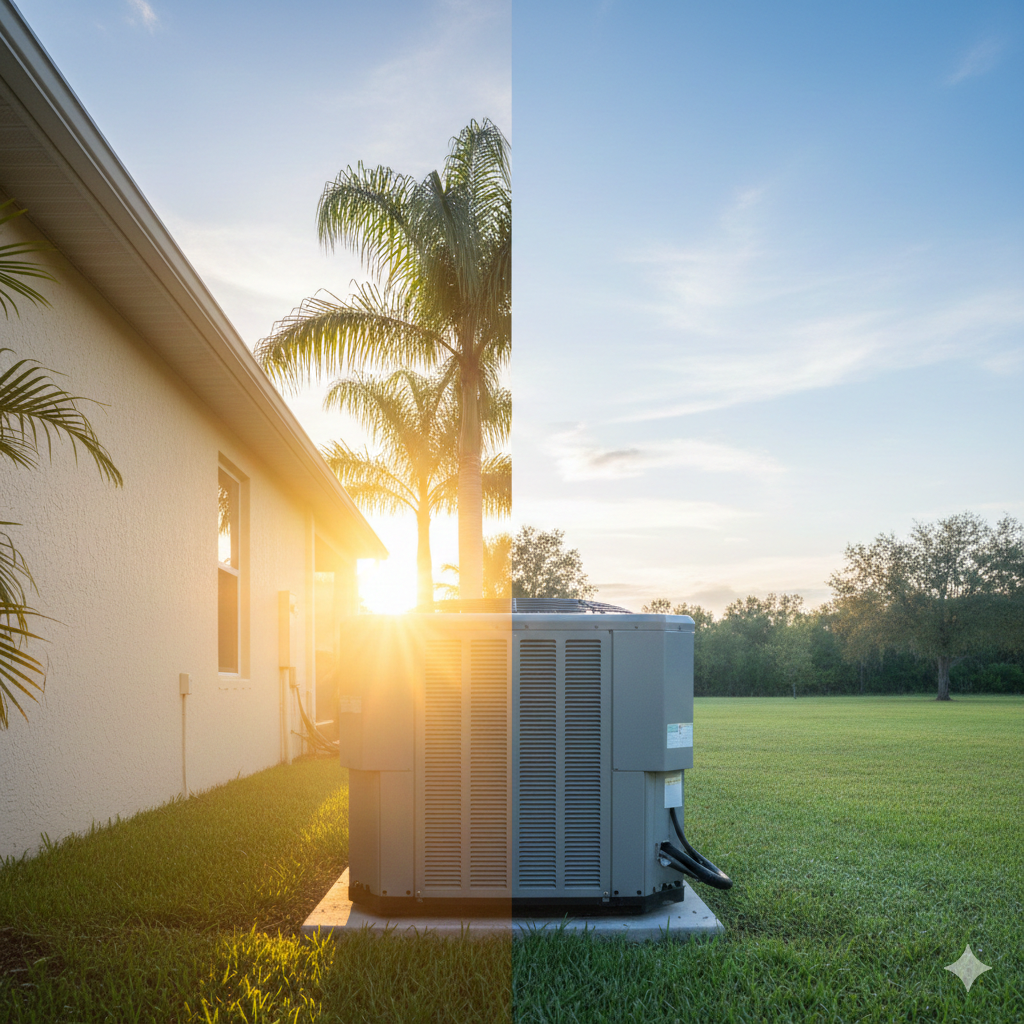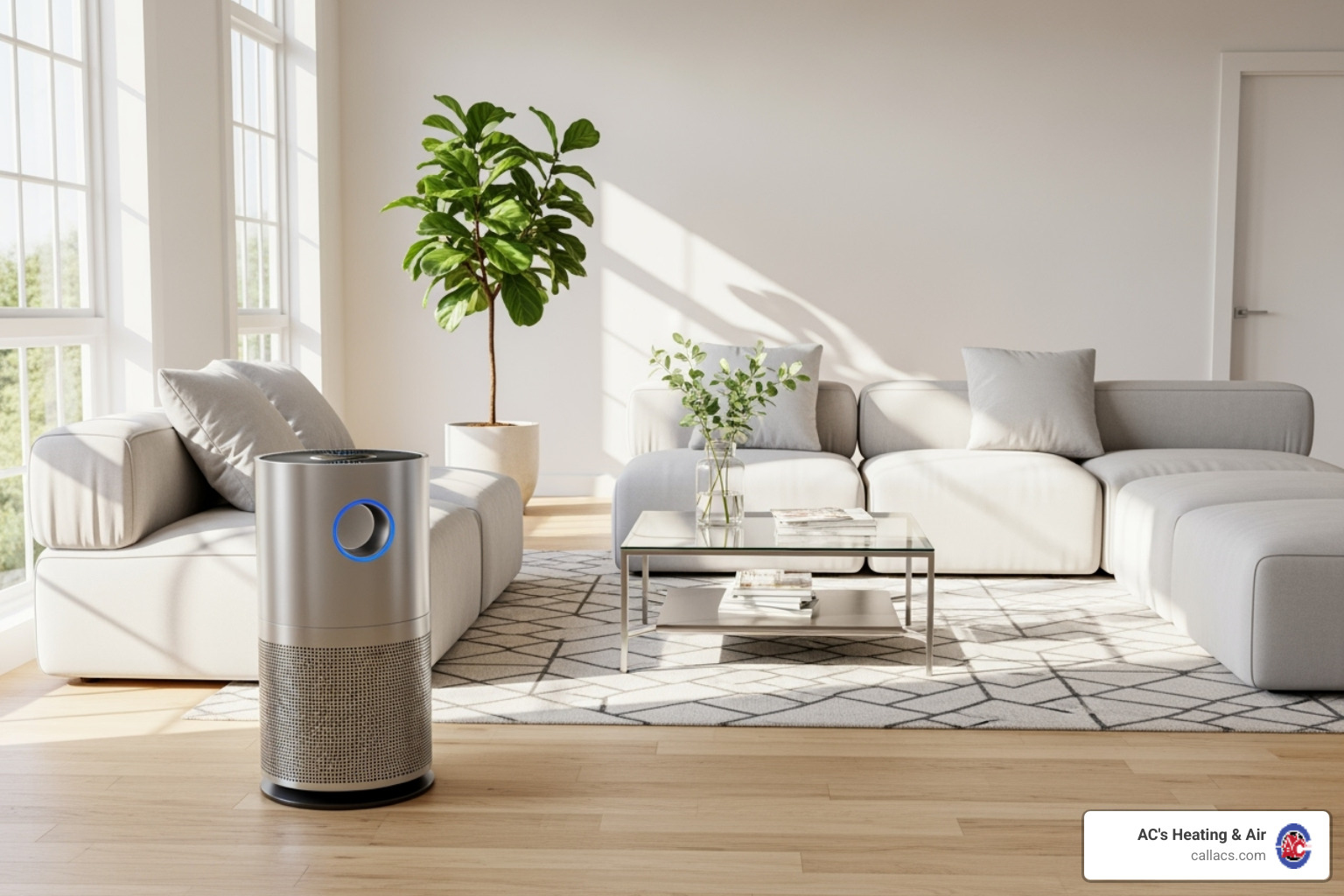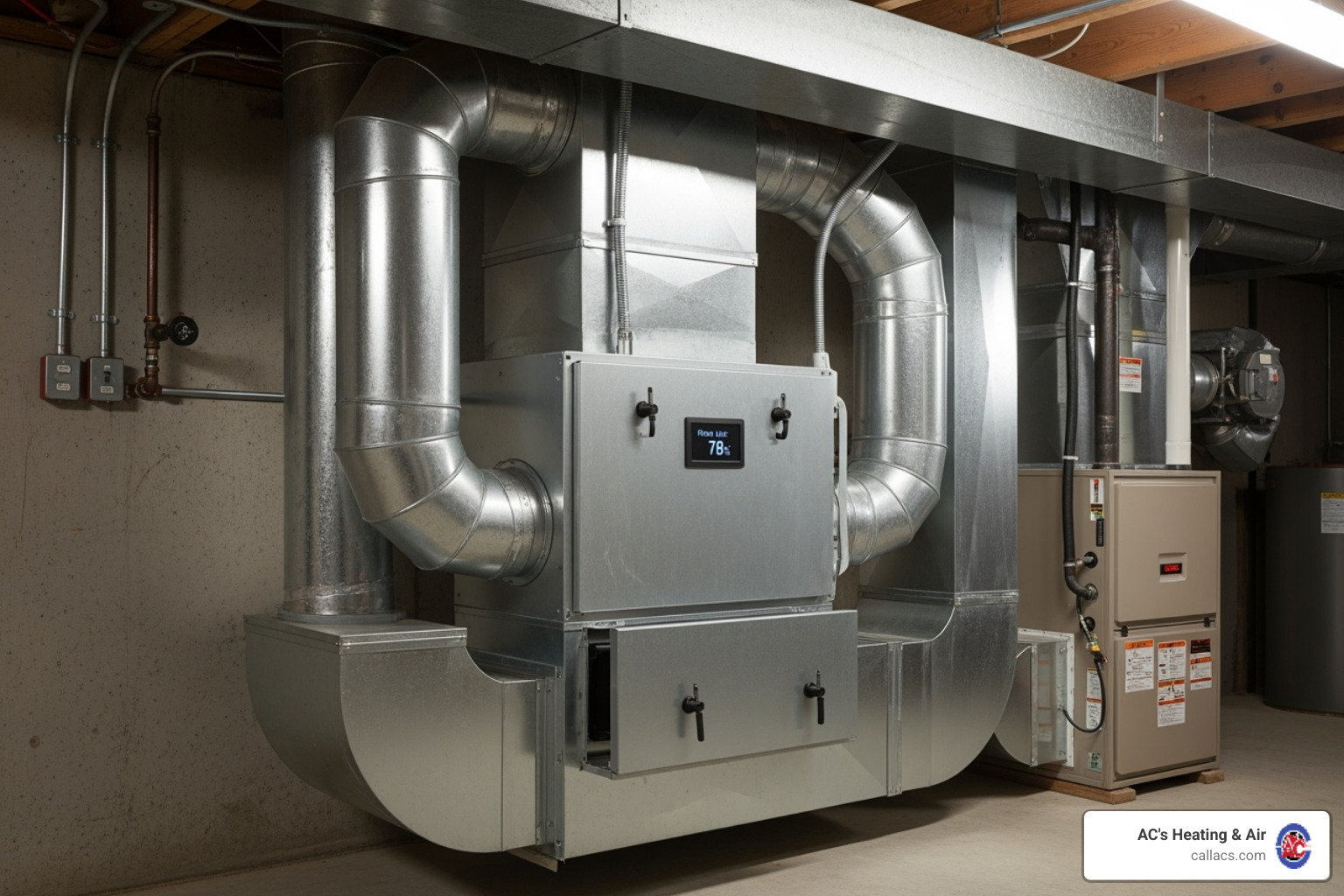Compressor Conundrum: A DIY Guide to Getting Your AC Back on Track
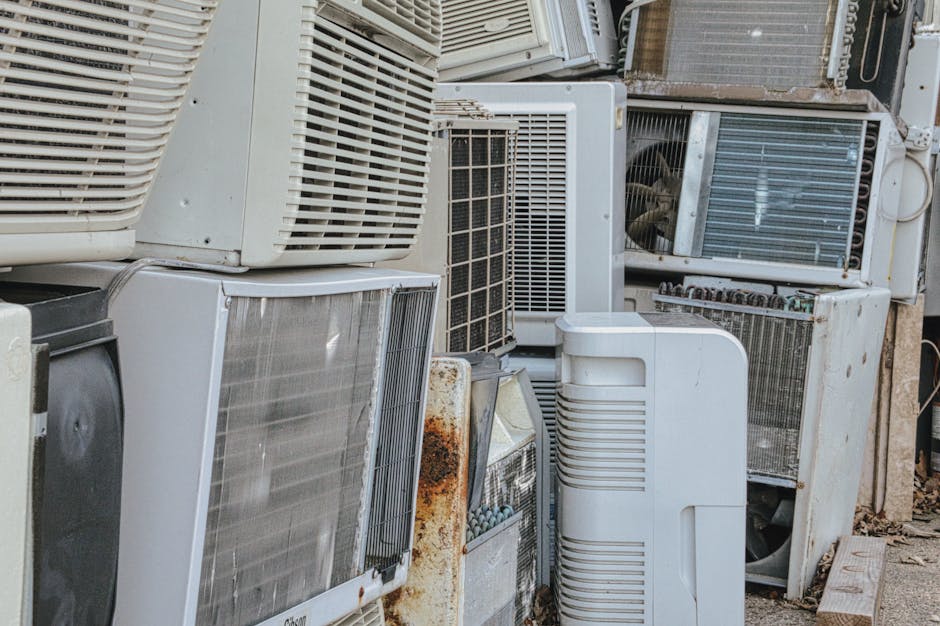
When Your AC Compressor Goes Silent: The Heart of Your Cooling System
When your air conditioner compressor not working strikes during Florida's sweltering heat, it feels like a nightmare scenario. Your home starts heating up fast, the kids get cranky, and suddenly you're scrambling for solutions while sweat drips down your back.
Quick troubleshooting steps for a non-working AC compressor:
- Check the circuit breaker - Reset if tripped
- Verify thermostat settings - Ensure it's set to "cool" and below room temperature
- Replace dirty air filter - Clogged filters can shut down the compressor
- Inspect outdoor unit - Clear debris and check for ice buildup
- Listen for unusual sounds - Buzzing, clicking, or grinding noises
- Call a professional - If electrical components or refrigerant issues are suspected
The compressor acts as the heart of your AC system - it's what pumps refrigerant through the coils to create that blessed cool air. When it stops working, your entire cooling system comes to a halt. But here's the good news: not every compressor problem requires an expensive replacement.
Some issues can be fixed with simple DIY checks, while others need professional attention. The key is knowing which is which - and that's exactly what this guide will teach you.
I'm Allen Chenault, owner of AC's Heating & Air, and over my 20 years in the HVAC industry, I've seen every type of air conditioner compressor not working scenario imaginable across Central Florida. Most homeowners can handle basic troubleshooting safely, but knowing when to call the pros can save you thousands in unnecessary repairs.
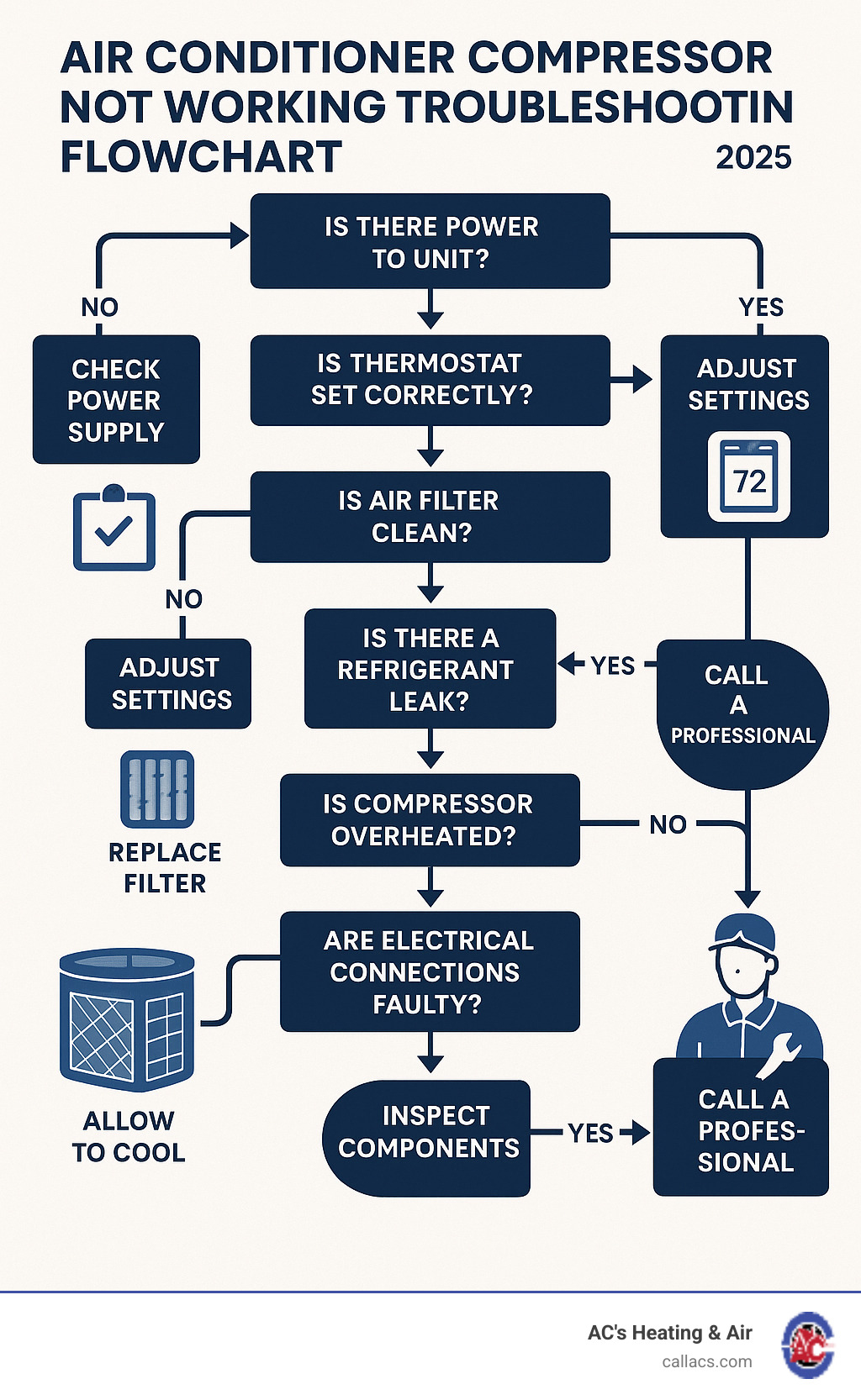
First, The Telltale Signs: How to Know Your AC Compressor is Failing
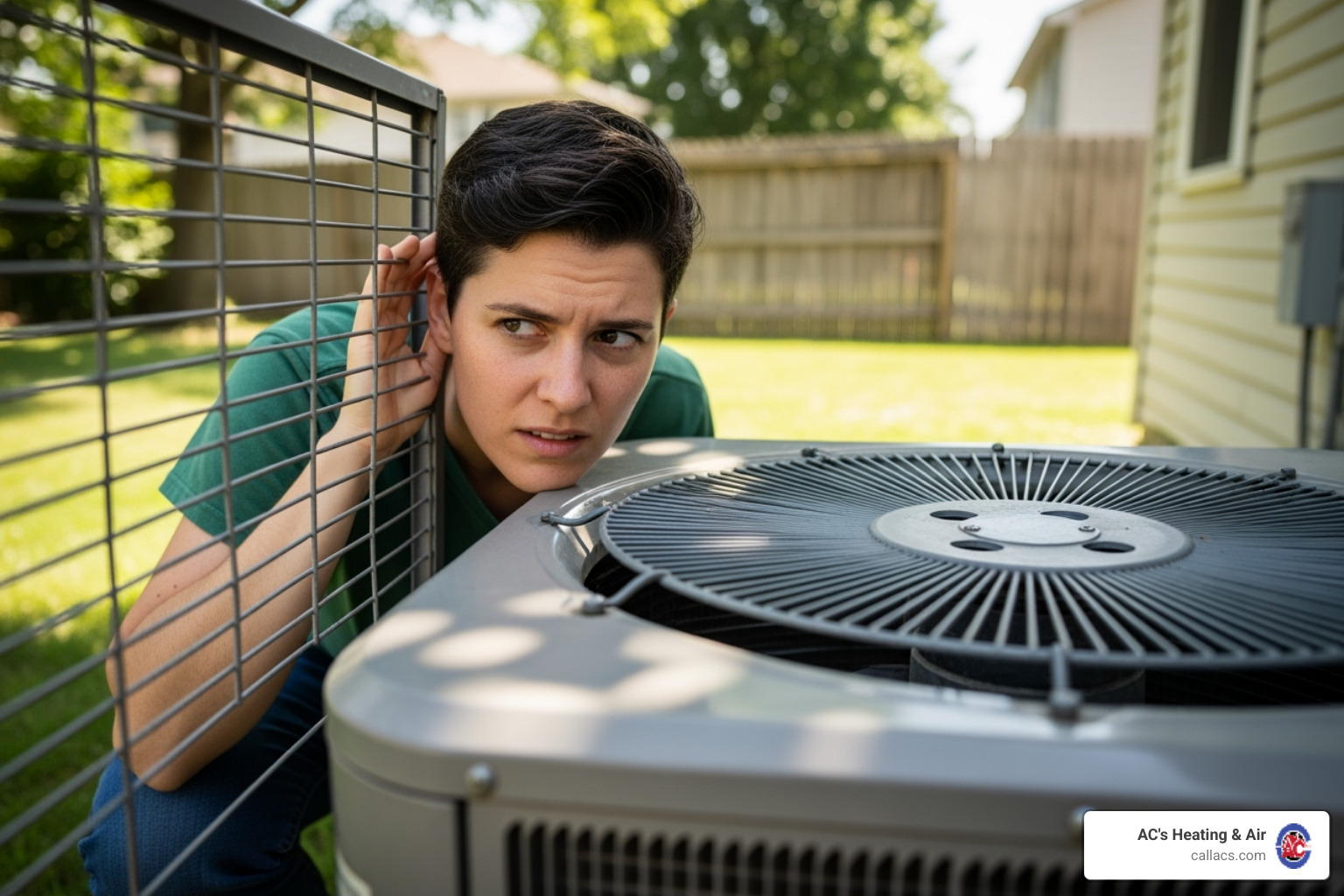
Picture this: you're sitting in your living room on a blazing hot afternoon in Orlando, and something just doesn't feel right. The AC is humming away, but your house feels more like a sauna than the cool sanctuary you're paying for. That's often the first clue that your air conditioner compressor not working properly.
AC blowing warm air is the most obvious red flag. When your indoor unit keeps running but only pushes lukewarm or hot air through your vents, the compressor has likely stopped doing its job. It's supposed to compress the refrigerant so it can absorb heat from your home - but when it fails, you're just circulating indoor air with no cooling happening.
Your ears can be your best diagnostic tool too. A healthy AC makes a steady, gentle hum when running. But when something's wrong, you'll hear it loud and clear.
Buzzing or humming sounds that seem louder than usual often point to electrical problems. If you hear buzzing when the compressor tries to start but doesn't, that's typically a failing start capacitor crying for help. A constant hum when the unit should be off? That usually means trouble with the contactor or relay.
Clicking sounds - or the absence of them when your AC should kick on - tell their own story. Repeated clicking without the compressor starting means it's trying but can't get going. This often points to a bad start relay.
Grinding or squealing noises are the sounds you never want to hear. These harsh sounds usually mean internal parts are wearing out or the motor bearings are shot. When you hear these, your compressor might be heading toward complete failure.
Your electrical panel can also give you clues. If the circuit breaker keeps tripping, your compressor is probably drawing too much power. This happens when the compressor is locked up, has a short circuit, or is struggling to start properly.
Don't ignore puddles or unusual moisture around your outdoor unit either. While some condensation is normal, excessive water or oily spots could mean refrigerant leaks or other system problems that directly impact compressor performance.
Finally, keep an eye on your energy bills. When your compressor isn't working efficiently, it works harder and longer trying to cool your home. That extra effort shows up fast in higher electricity costs - sometimes doubling or tripling your normal usage.
Catching these warning signs early can save you from a complete system breakdown during Florida's hottest days. The sooner you spot trouble, the better your chances of a simple fix instead of an expensive replacement.
Your DIY Troubleshooting Checklist: Simple Fixes for a Silent Compressor
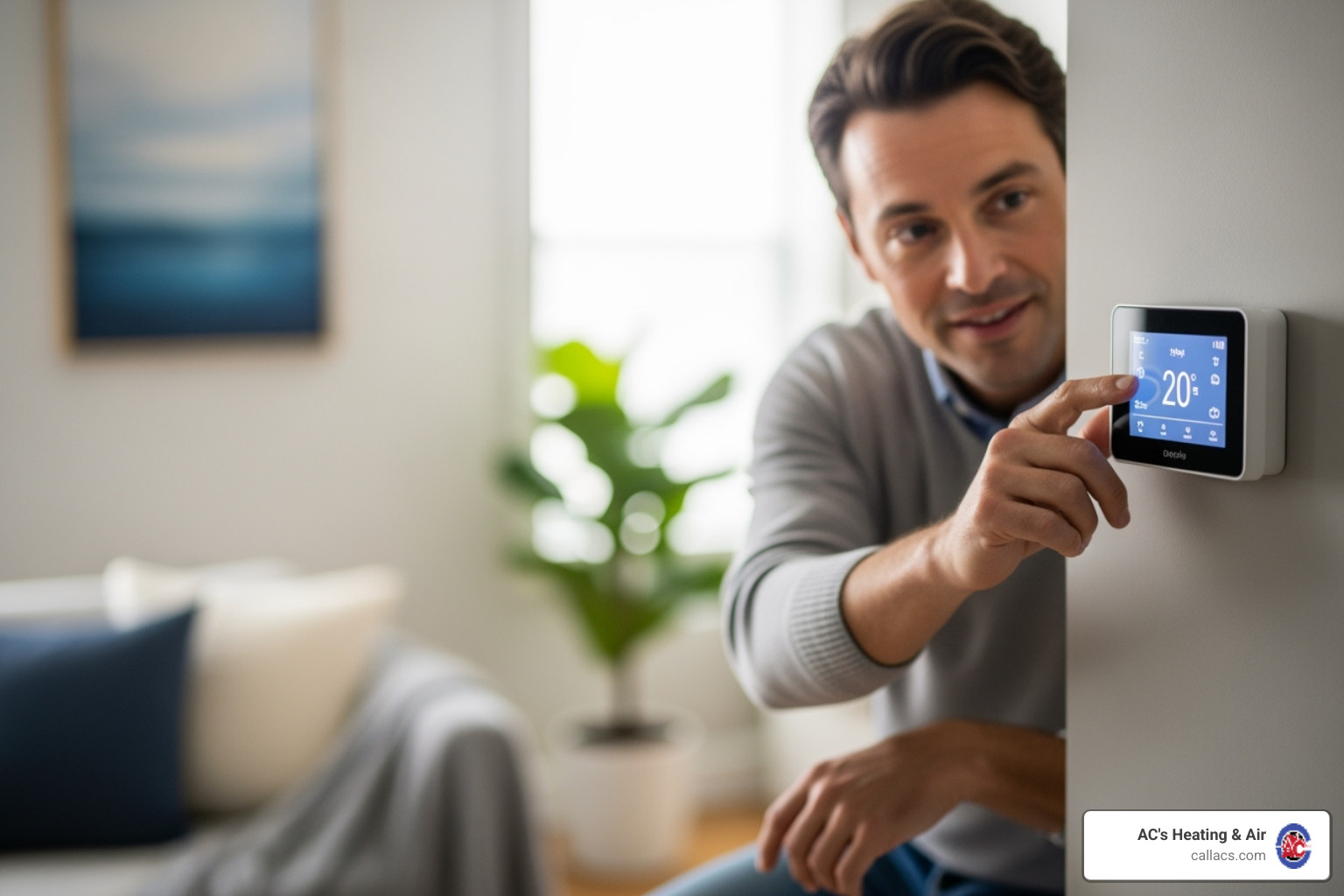
When your AC goes silent on a hot Florida afternoon, I totally get that sinking feeling in your stomach. The good news? Sometimes the fix is simpler than you think. Before you panic about needing a whole new compressor, let's walk through some basic checks that might get your cool air flowing again.
But first things first - safety always comes first. Before you touch anything on your AC unit, head to your circuit breaker and turn off the power to your outdoor unit. Look for that disconnect switch near your outdoor unit too and pull it out. Trust me, electricity and DIY don't mix well, and I'd rather you stay safe than sorry.
Check for Power Issues
I can't tell you how many times I've driven out to a service call in Winter Park, only to find the homeowner's circuit breaker panel had a tripped breaker. It happens more often than you'd think! Walk over to your electrical panel and look for the breaker labeled something like "AC," "Condenser," or "HVAC."
If that breaker is sitting halfway between "On" and "Off," or completely in the "Off" position, you've found your culprit. Flip it all the way to "Off" first, then push it back to "On." Give your system a couple minutes, then test your AC. Sometimes it's really that simple.
Now, if that breaker trips again right away, don't keep resetting it. That's your electrical system telling you there's a bigger problem - possibly with the compressor itself drawing too much power. That's definitely time to call us professionals.
Some older homes around Orlando still use fuses instead of breakers in their disconnect boxes. If you see a little glass tube with a thin wire inside that looks broken or blackened, that's a blown fuse. You can replace it, but if it blows again immediately, there's an underlying issue that needs professional attention.
Don't forget to check that outdoor unit disconnect switch I mentioned earlier. It's usually a small metal box near your outdoor unit with a handle you can pull out. Sometimes landscapers or family members accidentally bump it, and suddenly your air conditioner compressor not working mystery is solved.
Inspect the Thermostat
Your thermostat is basically the brain telling your AC when to work, so let's make sure it's thinking clearly. I've seen plenty of cases where the thermostat settings were the real problem all along.
First, double-check that your thermostat is actually set to "Cool" mode. I know it sounds obvious, but you'd be surprised how often someone accidentally bumps it to "Off" or "Heat." Then, set your temperature at least 5-10 degrees below your current room temperature. This gives your system a clear signal that it needs to get to work.
Here's something that catches a lot of folks off guard - dead batteries. If your thermostat display looks dim or blank, pop in some fresh batteries. It's such a simple fix, but when those batteries die, your compressor gets zero instructions about when to run.
Check if you have any thermostat schedules programmed that might be preventing your AC from cooling during certain hours. Sometimes people set up energy-saving schedules and then forget about them. And while faulty wiring behind your thermostat isn't really a DIY fix, loose connections can definitely make it seem like your compressor isn't responding.
Clear Airflow Obstructions
Think of your AC system like it needs to breathe - and when it can't, your compressor works way harder than it should. Sometimes it works so hard that it just gives up and shuts down to protect itself.
The biggest culprit? Your dirty air filter. When I tell homeowners in Apopka that a $3 air filter caused their AC to stop working, they usually don't believe me at first. But here's what happens: that clogged filter restricts airflow over your indoor coil, which can cause it to freeze up. A frozen coil drops your refrigerant pressure, triggering safety switches that shut down your compressor.
I recommend changing your air filter every 1-3 months, especially here in Florida where we run our ACs almost year-round. If you have pets or live in a dusty area, you might need to change it even more often.
Now let's talk about your outdoor condenser coils. These coils are where all the heat from inside your house gets dumped outside. When they're covered in dirt, leaves, or that lovely Florida pollen, they can't release heat properly. Your compressor has to work overtime trying to cool your home, and eventually, it might overheat and shut down.
You can actually clean these coils yourself with a garden hose - just make sure the power is completely off first! Spray gently from the inside out to avoid pushing debris deeper into the coils.
Keep the area around your outdoor unit clear too. I always tell my customers to maintain at least 2-3 feet of clearance around their unit. Those decorative shrubs might look nice, but they're choking your AC's ability to breathe.
Inside your home, make sure all your supply and return vents are open and not blocked by furniture or curtains. Every blocked vent puts more strain on your system, and that strain eventually reaches your compressor.
Why Your Air Conditioner Compressor is Not Working: Deeper Causes
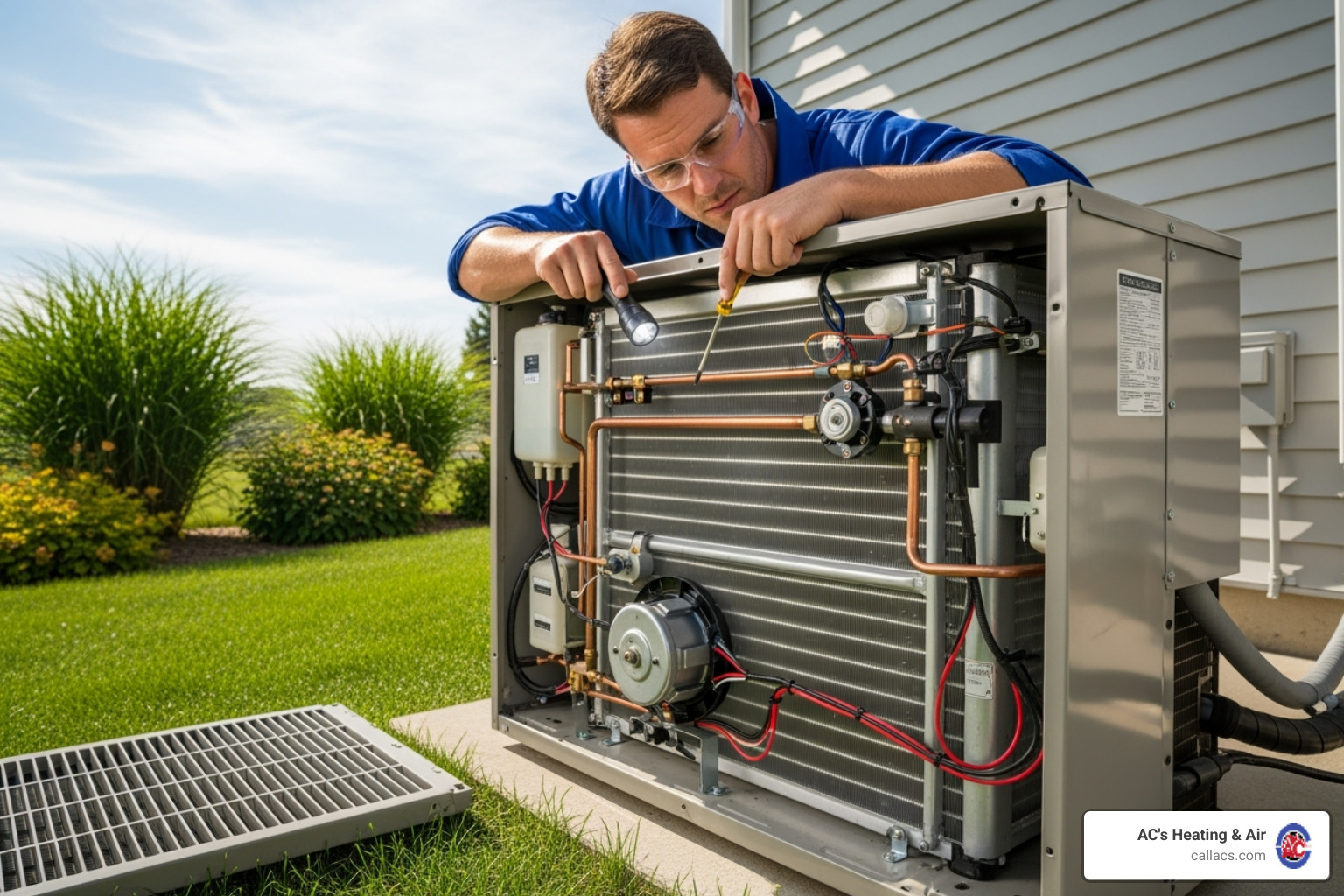
So you've checked the breaker, filter, and debris, but your air conditioner compressor not working problem persists. This is where we move from DIY fixes to complex issues requiring professional expertise. After eight years of servicing homes from Apopka to Winter Garden, I can tell you these deeper problems are common. Understanding them helps you make smarter decisions about repair versus replacement.
Electrical Gremlins: When the Capacitor or Relay Fails
Let me paint you a picture. Your compressor is like a heavyweight boxer - it needs a serious jolt of electricity to get moving. That's where the capacitor comes in, acting like a powerful battery that gives your compressor the initial punch it needs to start up.
There are actually two types working behind the scenes: the start capacitor gives that initial boost to get things moving, while the run capacitor keeps everything humming along smoothly once it's started. Think of it like pushing a heavy shopping cart - you need extra force to get it rolling, then less effort to keep it moving.
When a capacitor goes bad, you'll often hear your compressor trying its heart out but failing to start. It might make a humming sound without actually running - that's the motor trying to turn but not getting enough power. Sometimes you'll see a capacitor that's swollen or bulging on top, or even leaking fluid. These are dead giveaways that it needs replacement.
The start relay is another sneaky culprit. This little component controls when power flows to your compressor. When it fails, you might hear clicking sounds as the system tries to engage, or sometimes no sound at all. The compressor simply doesn't get the signal to wake up and start working.
Here's why these electrical failures are so frustrating: your air conditioner compressor not working might have nothing to do with the compressor itself. It's just not getting the power it needs to do its job, like trying to start your car with a dead battery.
Refrigerant-Related Problems
Now let's talk about something that makes many homeowners nervous - refrigerant issues. Refrigerant is truly the lifeblood of your AC system, and when something goes wrong here, your compressor feels it immediately.
Refrigerant leaks are probably the most common serious problem we encounter. When your system starts leaking refrigerant, it's like trying to run a marathon while slowly losing blood. Your compressor has to work harder and harder to maintain cooling, eventually overheating and giving up.
Low refrigerant levels create a domino effect. Your evaporator coils might freeze, triggering the low-pressure switch to shut the system down to prevent damage. Meanwhile, the compressor runs without proper lubrication and cooling, causing it to wear out much faster.
But here's something that surprises many homeowners - too much refrigerant can be just as bad. An overcharged system creates excessive pressure that strains your compressor like an overinflated balloon. The high-pressure switch will shut things down when pressure hits around 450 psi, but the damage might already be happening.
The scariest part about refrigerant leaks? They can introduce moisture and contaminants into your system, leading to acid formation that literally eats away at your compressor's internal components. We call this "acid burnout," and it's usually game over for the compressor.
Signs of a Serious Mechanical Failure
Sometimes, despite our best maintenance efforts, compressors just wear out. It's the reality of mechanical equipment, especially in Florida's demanding climate where AC systems work overtime.
A locked-up or seized compressor is one of the most definitive signs that replacement is needed. The internal parts are literally stuck and can't move. When this happens, the motor tries to draw massive amounts of power at startup, causing your circuit breaker to trip repeatedly. It's like trying to turn a wrench that's completely stuck - something's got to give.
Internal mechanical damage usually develops over years of faithful service. Pistons, valves, scrolls (depending on your compressor type) - these parts work millions of cycles over their lifetime. Eventually, they wear out, break, or jam up. There's no shame in this - it's just the natural lifecycle of equipment.
The motor windings inside your compressor can fail in several ways that spell trouble. Open windings mean a break in the electrical circuit, grounded windings indicate insulation breakdown causing shorts to the casing, and shorted windings create internal electrical failures. Any of these winding problems means your compressor motor can't operate properly.
How can you tell if you're dealing with serious mechanical failure? Grinding or squealing noises are red flags that internal parts are damaged. Repeated circuit breaker trips despite checking power and airflow often indicate internal electrical problems. And if your unit refuses to start with loud humming or clicking, you're likely looking at internal mechanical issues.
The truth is, most serious mechanical failures aren't repairable in modern sealed compressors. When we encounter these problems in homes throughout Central Florida, replacement is usually the most cost-effective long-term solution.
Repair or Replace? Making the Smart Financial Decision
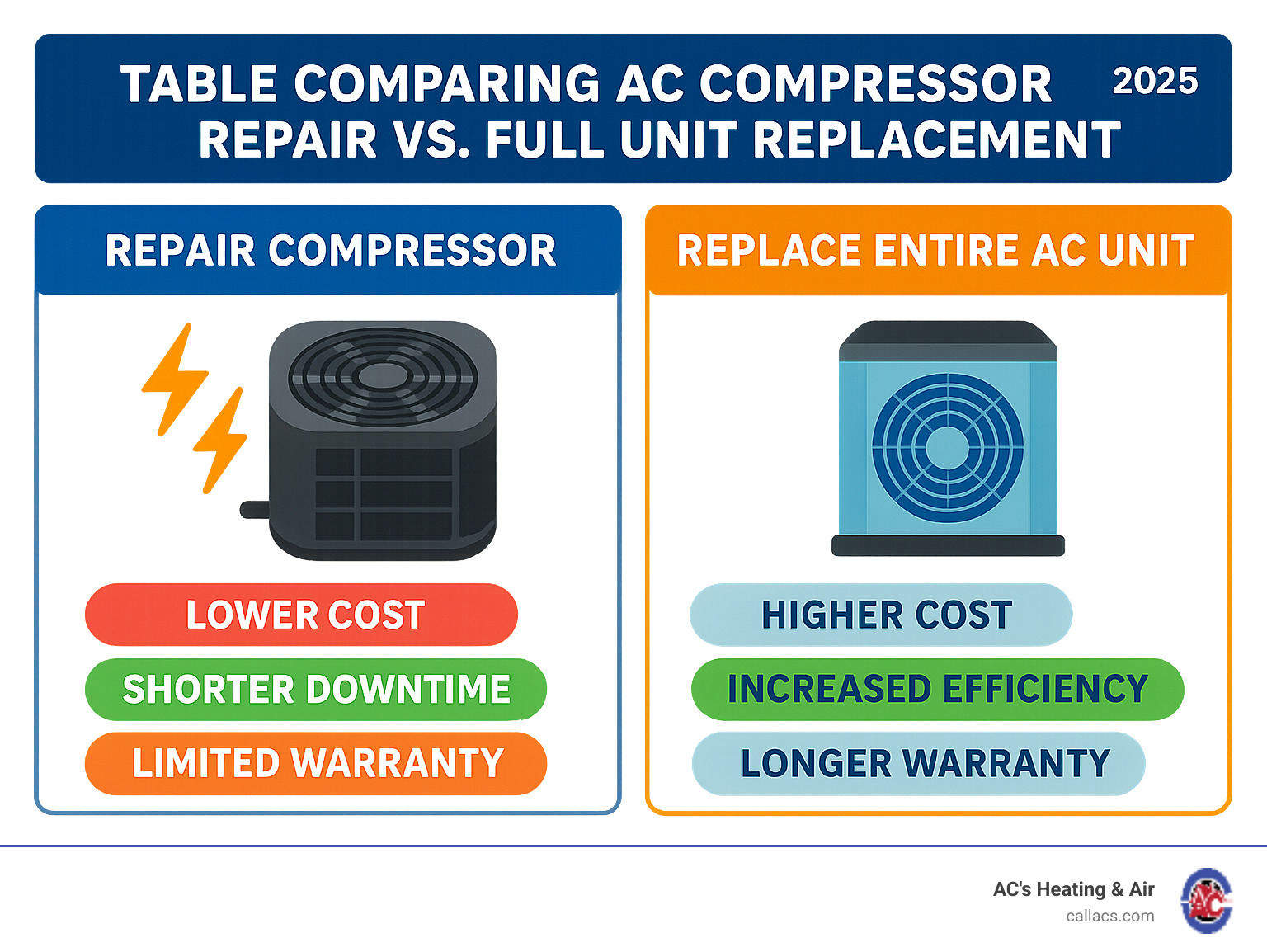
When your air conditioner compressor not working problem turns out to be a major issue, you're facing one of the toughest decisions in homeownership: repair or replace? I've had this conversation with hundreds of families across Central Florida, and I know it can feel overwhelming. Let me break down the real factors that matter for your wallet and your comfort.
Here's the honest truth: age is everything when making this decision. If your AC unit is under 10 years old and has been well-maintained, repairing the compressor often makes financial sense. The rest of your system still has good life left, and you'll get several more years of reliable cooling.
But if your unit is pushing 10-15 years old, we need to have a different conversation. Replacing just the compressor costs less upfront, but you're essentially putting a new engine in an old car. The evaporator coil, condenser coil, and other components have been working just as hard as that failed compressor. They're likely not far behind.
Energy efficiency is where things get really interesting. Your older AC unit probably has a SEER rating somewhere between 8-13. Today's units start at 14 SEER and go up to 20 or higher. That's not just a number on a sticker - it's real money staying in your pocket every month on those brutal Florida summer electric bills.
The warranty situation also plays a huge role in this decision. A new compressor might come with a parts warranty, but it won't cover the rest of your aging system. A full replacement gives you peace of mind with a complete system warranty. No more surprise breakdowns during the hottest week of the year.
Refrigerant type is another factor many homeowners don't consider. Older systems often use refrigerants that are being phased out, making future repairs more expensive and complicated. New systems use modern refrigerants that will be available and affordable for years to come.
From my experience serving families in Winter Park, Orlando, and beyond, I've seen too many homeowners spend money on compressor repairs only to face another major component failure six months later. When we look at the total cost over the next five years - repairs, efficiency, and reliability - full replacement often wins.
That said, every situation is unique. If budget is tight and your system is relatively young, a compressor repair can absolutely be the right call. We'll always give you honest advice based on your specific circumstances, not what's best for our bottom line.
Frequently Asked Questions about AC Compressor Issues
Homeowners often ask the same questions about their air conditioner compressor not working issues. Here are the answers that matter most.
How long should an AC compressor last?
Here in Florida, where our AC units work overtime almost year-round, you can expect your compressor to last 10-15 years with proper maintenance. That's the key phrase right there - with proper maintenance.
I've seen compressors in Apopka homes that have chugged along for nearly two decades because the owners stayed on top of filter changes and annual tune-ups. On the flip side, I've replaced 5-year-old compressors that were neglected and overworked.
Florida's climate does shorten compressor life compared to northern states. While a compressor in Minnesota might last 15-20 years, ours typically see 8-12 years of service due to constant use. Think about it - your AC runs from March through November, sometimes even December!
Regular maintenance makes all the difference. Clean coils help your compressor breathe easy, fresh filters prevent ice buildup that can damage internal parts, and proper refrigerant levels keep everything running smoothly.
Can a compressor be fixed or does it always need to be replaced?
Some compressor problems are simple fixes, while others require a replacement.
The good news: if your compressor won't start because of a bad capacitor or faulty start relay, these are relatively inexpensive electrical parts we can swap out quickly. I've had many relieved homeowners in Winter Park find their "dead" compressor just needed a $20 capacitor replacement.
The challenging news: when a compressor has internal mechanical damage - like seized pistons, damaged scrolls, or failed motor windings - it's typically beyond repair. Modern compressors are hermetically sealed units, which means we can't crack them open to fix internal parts. It's like trying to repair the engine of a sealed watch.
Signs your compressor might be repairable include humming without starting, clicking sounds, or working intermittently. Signs it needs replacement include grinding noises, repeatedly tripping breakers, or complete silence when it should be running.
Why is my AC fan running but the compressor is not?
It's a confusing scenario: the outdoor fan is spinning, but your house isn't getting cool. Here's why that happens.
The most common culprit is a bad capacitor. Your fan motor and compressor often have separate capacitors, so the fan can keep running even when the compressor capacitor fails. You'll typically hear the compressor trying to start with a humming sound, but it just can't get going.
A faulty start relay creates similar symptoms. The relay acts like a light switch for your compressor - when it fails, the compressor never gets the signal to turn on, even though the fan keeps spinning happily.
Low refrigerant levels also cause this issue. When refrigerant drops too low (usually from a leak), the low-pressure switch automatically prevents the compressor from starting. It's actually protecting your compressor from damage, but it leaves you with warm air.
Compressor overheating is another possibility, especially during our brutal Orlando summers. If the unit overheats due to dirty coils or restricted airflow, the thermal overload protector shuts down the compressor while allowing the fan to continue running.
Finally, double-check your thermostat settings. Make sure it's set to "Cool" mode and the fan setting is on "Auto" rather than "On." When set to "On," the fan runs continuously whether the compressor is cooling or not.
If you're experiencing the air conditioner compressor not working while the fan runs, start with these checks, but don't hesitate to call us if the problem persists. We're here to help keep Central Florida homes comfortable!
Stay Cool: When to Call the Pros for Your AC Compressor
We hope this guide helps you tackle basic troubleshooting for an air conditioner compressor not working. You've learned the first steps: checking power, thermostat settings, and airflow obstructions.
But here's where we need to have a serious heart-to-heart. Many compressor issues venture into territory that's frankly dangerous for DIY enthusiasts. Electrical work on HVAC systems isn't like changing a light bulb - we're talking about high-voltage components that can seriously injure you or worse. Those capacitors we mentioned? They can hold a lethal charge even when the power is off.
And then there's the refrigerant. Handling it isn't just technically challenging—it requires specialized equipment and EPA certification by law. Attempting to fix a leak or "top off" your system yourself can damage the compressor, harm the environment, and expose you to hazardous chemicals.
The bottom line is this: if you've gone through our DIY checklist and your AC is still giving you the silent treatment, it's time to call in the cavalry. Strange grinding noises, repeatedly tripped breakers, or any suspected refrigerant problems are all red flags that scream "professional help needed."
At AC's Heating & Air, we've built our reputation on solving these exact problems throughout Central Florida. Whether you're in Apopka dealing with a seized compressor or in Winter Garden facing mysterious electrical gremlins, our team has the expertise and tools to diagnose and fix the problem safely.
Here's something most homeowners don't realize: preventative maintenance is your compressor's best friend. Our custom HVAC maintenance plans don't just keep your system running efficiently - they catch small problems before they become expensive disasters. Regular professional cleaning, refrigerant level checks, and electrical component inspections can add years to your compressor's life.
Don't spend another sweltering Florida day wondering if your AC will come back to life. We serve communities throughout Central Florida, including Orlando, Winter Park, Orange County, Isleworth, and Celebration, and we're ready to get your home comfortable again.

